Understanding economic policy in Pakistan
Well-informed, dynamic economic policy discourse is the need of the hour
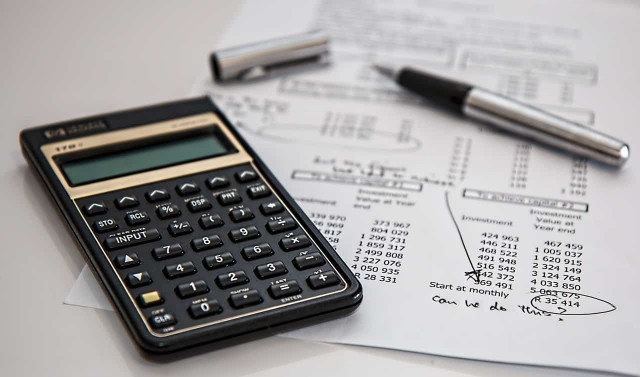
How is Pakistan’s public sector pension system managed? What are the main components of the annual budget and current account? What is the total revenue, profit and annual repatriation by the multinational companies operating in Pakistan?
What is the share of profit that private and foreign banks earn in Pakistan; what are their main lending portfolios and how much of them goes to key economic sectors such as agriculture and SMEs? What is the size of public sector subsidies and what is the rationale and effectiveness of such subsidies?
These are a few questions that one should ask the economic managers in Pakistan, preferably from all four pillars of the state.
While none could deny the importance of economy in the statecraft, a few would bother understanding it and designing and applying policies accordingly. This needs to be rectified for that the well-informed and well-analysed economic policy design and implementation is a prerequisite for any country, more so for a growing economy like Pakistan.
For ease of reference, the economic policy includes fiscal, monetary, debt, industrial, trade, investment and privatisation matters.
Let us start with the legislature – the first pillar of state. It would be quite interesting to know how much time both houses of parliament spend on discussions and motions on economic policy and related issues, apart from the annual budget or Finance Bill.
While parliamentarians are not supposed to be economists, they should know at least the basics. Proceedings of house committees on finance and commerce are also quite telling if one wishes to gauge the interest in economic policy issues.
The executive pillar - the most important one for the design and implementation of economic policy - may not lack good economic managers but certainly fails to place the right man in the right job.
The archaic bureaucratic system does not cater to such planned placements. Profiles of senior officers in the ministries of finance, commerce, economic affairs, industries, privatisation and investment can be checked and it can be gauged how many of them are suitably qualified for the positions they are holding.
We may find a financial management expert working in the Ministry of Religious Affairs and a trade policy expert parked in the Ministry of Housing.
Moving on to the judiciary, we can see there are certain proceedings on the corporate and related issues and sometimes suo motu notices.
The fourth pillar, where I am taking the liberty to bracket the media and civil society, is probably the weakest link when it comes to economic policy. The share of time allotted, by tele-media, to economic policy and related issues is minimal.
Out of scores of talk shows every night, there are hardly any on economic issues. With the exception of a very few, the newspapers have shrunk their spaces allotted to economic, business and finance issues, and there too, one may find more of reporting rather than analytical work.
On the civil society front, there is a near absence of attention to economic policy issues. With the exception of the Sustainable Development Policy Institute (SDPI), there is hardly any noticeable think tank working on this front.
Though not exactly classified as a pillar of the state, the academia is quite absent from feeding into the economic policy process in Pakistan.
Barring a couple of universities and specialised schools, the education on economics and related subjects is no more than memorising a textbook. Even in the specialised schools, little focus is given to applied economics and related public policy aspects.
Lack of focus
What is the problem? It is certainly not the lack of capacity in my view. We have a good number of professionals who could meet the need in all four pillars of the state.
Our economists are the world-renowned but we have hardly benefited from. The core of the problem, in my view, is the national focus or priority.
Where a developing democracy has 129 political talk shows daily and an economy of around $300 billion has exports hovering around $24 billion, it is not hard to identify the focus.
Since the birth of Pakistan, the economic policy process has been run on an ad hoc basis, with a patchwork of proposed solutions that ultimately complicates the economic framework and infrastructure.
Not to be forgotten that there is certainly the existence of five-year plans and many other processes, but it is not possible for me, at least, to find their causality in actual economic management.
This is a huge problem if we try to quantify the losses that Pakistan is bearing due to the ill-informed economic policy design and implementation. That is often unsustainable, thus exposed to experimentation by various governments and sometimes many times within the cycle of a government.
Fortunately, the solution is neither expensive nor difficult. All it needs is to put issues and focus in the right perspective, human resources in the right places and input/feedback mechanisms (ie academic institutions, media, civil society) in the right direction.
A constructive, continued, well-informed and dynamic economic policy discourse is the need of the day for Pakistan. This will increase the sustainability and ownership of economic policies and facilitate implementation in true letter and spirit.
The writer works as an economist, focusing on trade and food security, in the Geneva office of FAO
Published in The Express Tribune, August 17th, 2020.
Like Business on Facebook, follow @TribuneBiz on Twitter to stay informed and join in the conversation.

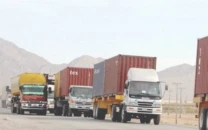
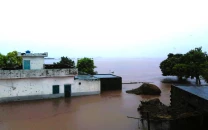
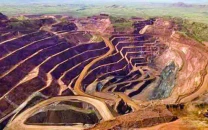


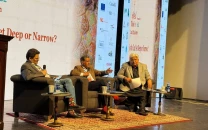












COMMENTS
Comments are moderated and generally will be posted if they are on-topic and not abusive.
For more information, please see our Comments FAQ